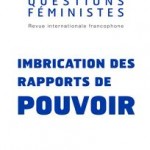 Vortragsreihe „Kunst – Forschung – Geschlecht“ der Abteilung für Genderangelegenheiten, Univ. für angewandte Kunst Wien (Web); Studienjahr 2017/18
Vortragsreihe „Kunst – Forschung – Geschlecht“ der Abteilung für Genderangelegenheiten, Univ. für angewandte Kunst Wien (Web); Studienjahr 2017/18
Einreichfrist: 30. April 2017
Die disziplinenübergreifende Vortragsreihe wird im Studienjahr 2017/18 einem Maßlosen, der Maßlosigkeit nachgehen. Es interessiert das Überschreiten von Angemessenheit in Formen der Rede, in literarischen Schreibweisen, in Handlungsweisen der performativen Künste, auch der Komik, oder im Bereich von queer-feministischen Aktivismen und den bewusst fantastisch-provokanten Manifesten, die diese Artikulationen immer wieder begleiten:
Dabei wäre etwa an Mina Loys Feminist Manifesto (1914), an Valerie Solanas’ SCUM Manifesto (1967), Bikini Kill’s Riot Grrrl Manifesto (1991), Beatriz Preciados Manifiesto contrasexual (2000), an Virginie Despentes’ King Kong Théorie (2006), oder an die Umarbeitung von Oswald de Andrades Manifesto Antropófago (1928) durch das feministische Migrantinnen-Kollektiv MAIZ zu denken. Weiterlesen … (PDF)

